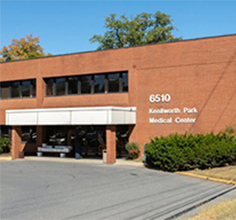
A flat belly might look great, but it does not necessarily mean a healthy gut! If you are suffering persistent bloating and gas, sensitivity to certain foods such as cheese, or struggling to maintain a healthy weight, then you may be experiencing symptoms of an unhealthy gut. Fortunately, you are not helpless. A primary care physician can play a lead role in managing and supporting your gut health. In this article, we share some ways that primary care doctors can improve your gut health. If you are looking for a reputable primary care physician in the area, you are welcomed to call Southern Maryland Medical Group to schedule an appointment today.
Primary care physicians possess inquisitive diagnostic expertise, and they are able to identify and evaluate various digestive issues. By actively listening to patients' symptoms and medical history, a primary care doctor can perform thorough physical examinations and order relevant tests. What you may consider to be inevitable or inexplicable discomfort, like gassiness or bloating, can be determined by a physician to be expected and solvable.
For instance, if a patient experiences recurring abdominal pain, bloating, or changes in bowel movements, the primary care physician may suspect conditions like irritable bowel syndrome (IBS) or inflammatory bowel disease (IBD). Through proper evaluation, they can provide appropriate guidance, recommend further diagnostic tests, or refer patients to specialists for advanced care.
Your gut, or gastrointestinal system, is not just responsible for excreting waste. Its primary role is to absorb nutrients from food, and primary care physicians can assess if patients have any nutrient deficiencies that may impact their gut health or be due to their gut health. Through comprehensive lab tests, your primary care physician can evaluate key markers like iron levels, vitamin D, and B vitamins. They can then get to the root cause of the issue.
For instance, if a patient presents symptoms of fatigue, pale skin, and weakness, the primary care physician may suspect iron deficiency anemia. They can then recommend dietary adjustments or prescribe supplements to restore optimal nutrient levels and support gut health.
Primary care physicians in Riverdale understand the profound impact your lifestyle and diet has on your gut health. They can provide personalized recommendations to improve gut health through practical and achievable lifestyle modifications.
For example, if you are experiencing frequent indigestion, the primary care physician may suggest avoiding trigger foods like spicy or fatty meals, and encourage you to practice portion control. Additionally, they can emphasize the importance of incorporating fiber-rich foods, such as fruits, vegetables, and whole grains, to promote healthy digestion and support the growth of beneficial gut bacteria.
We provided some examples in this article, but none of these should be taken as medical advice or diagnoses. If you are experiencing gastrointestinal issues, then you should see your primary care physician sooner rather than later. Residents in the area are welcome to call Southern Maryland Medical Group to schedule a convenient appointment or arrange an urgent walk-in appointment for as soon as possible.
Southern Maryland Medical Group has 3 convenient locations to provide professional medical care services in the Southern Maryland area. Call or schedule an appointment with one of our locations to get medical care help.

5801 Allentown Road, Suite 400 Camp Spring, MD 20746
Phone: 301-868- 0150
Billing Inquiries: 301-552-1270
Fax: 301-868-0243

7500 Greenway Center, Dr #1200 Greenbelt, MD 20770
Phone: 301-486-7580
Billing Inquiries: 301-552-1270
Fax: 301-486-7581

6510 Kenilworth Ave, Ste 1400, Riverdale MD 20737
Phone: 301-618-0771
Billing Inquiries: 301-552-1270
Fax: 301-618-0772